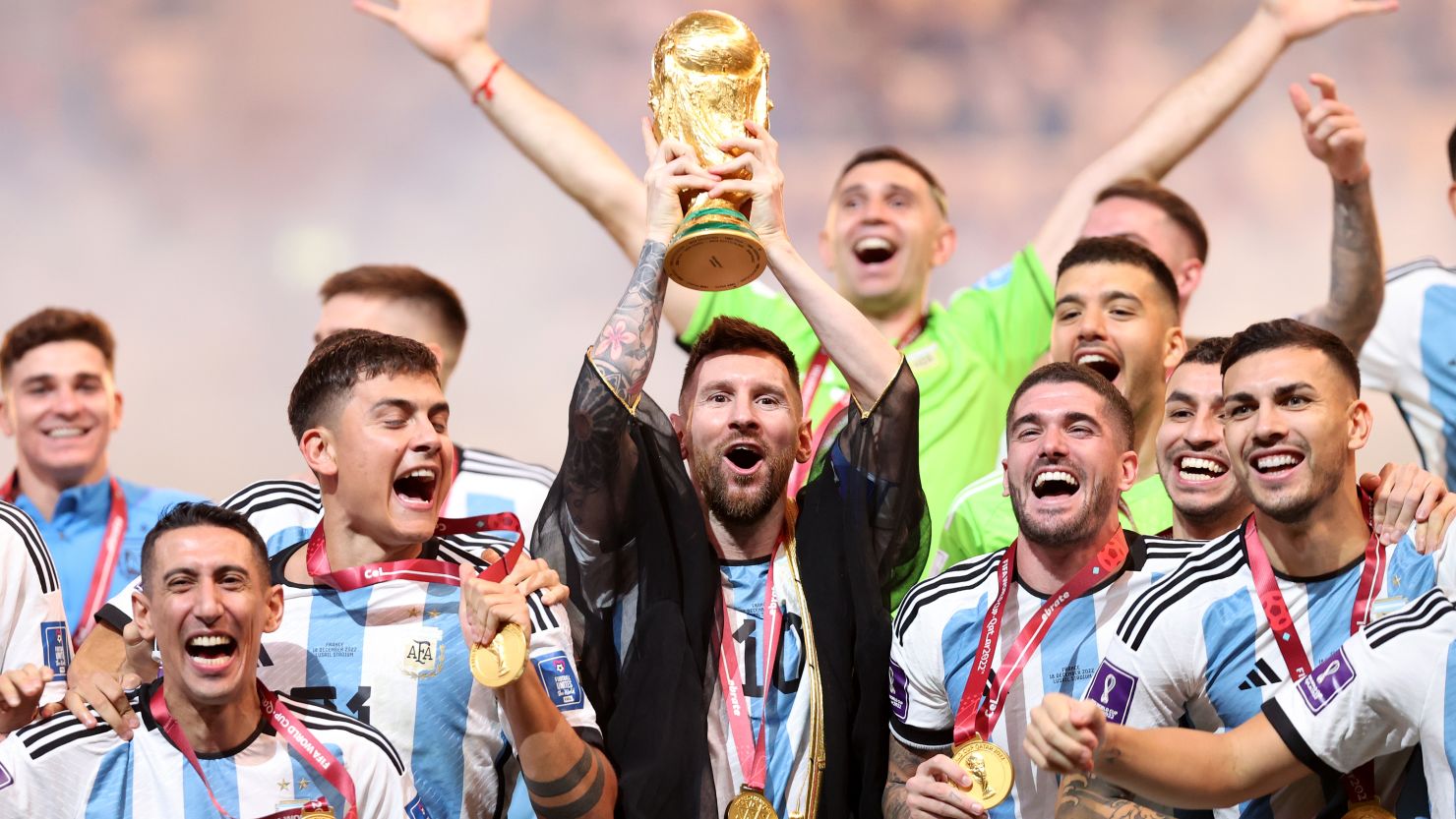Now there can be no arguments. Now there should be no debate.
In the most dramatic, nerve-shredding way imaginable, Lionel Messi finally got his hands on the World Cup and with it cemented his place in the pantheon of soccer greats, alongside Diego Maradona and Pelé.
The final was as good as soccer gets. A match for the ages with a fairytale ending.
Messi and Kylian Mbappé, the game’s two superstars went toe-to-toe in arguably the greatest World Cup final in history. Soccer may be a team game, but this was a prize fight between two players who will be remembered as all-time greats.
Mbappé scored a remarkable hattrick, making him just the second man in history to do so in a World Cup final, and won the Golden Boot – awarded to the tournament’s top scorer – but fell agonizingly short in his effort to single-handedly retain the trophy for France.
Aged just 23, Mbappé’s astonishing performance further confirmed his status as the future of the sport. He has now scored four goals in World Cup finals, the most of any player in history, and he is level with Pele on a total of 12 World Cup goals. He has time to surpass all-time World Cup scorer Miroslav Klose on 16.
But for all the history Mbappé created on an intoxicating floodlit night in Doha, this was Messi’s final. The Argentine captain was not ready to hand over the torch just yet.
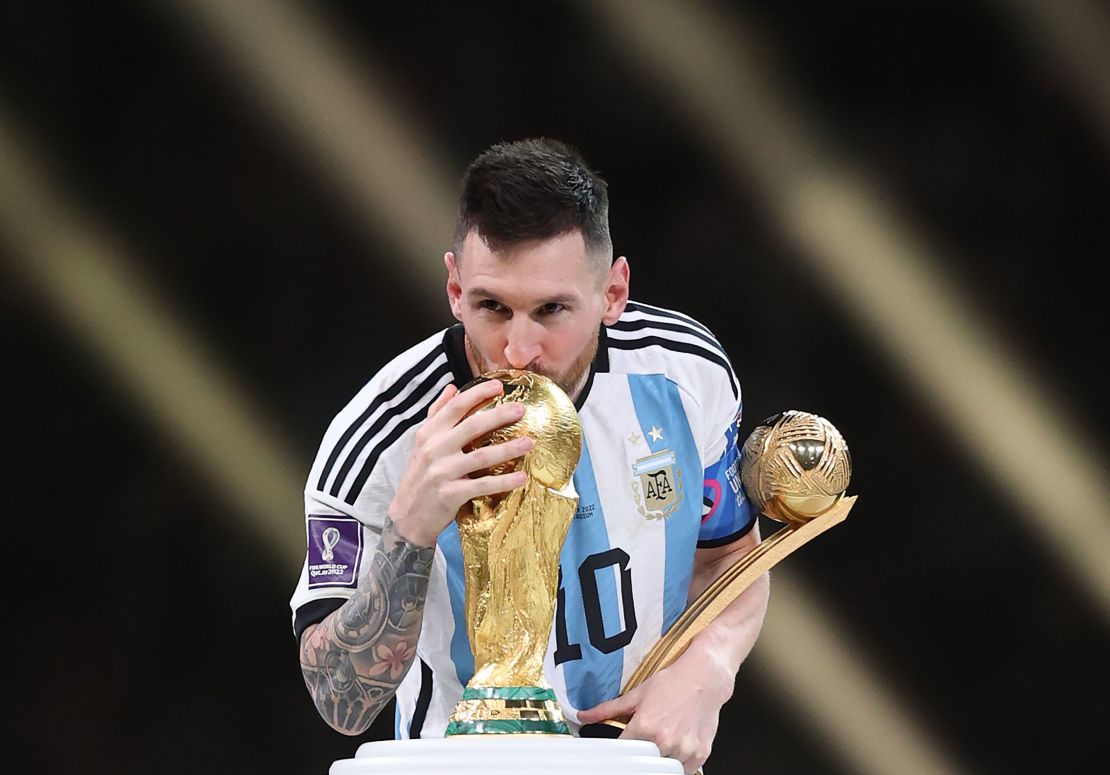
The 35-year-old was relentlessly brilliant throughout this tournament, playing with a steely grit and determination that stemmed from an innate belief that this trophy was his destiny, a glorious World Cup farewell that was written in the stars.
After Gonzalo Montiel rolled in the winning penalty, Messi sank to his knees and buried his face in his hands. The moment he had alwaysdreamed of was finally here.
His teammates flocked to him, sinking to their knees to embrace their captain; they had wanted to win this as much for him as for themselves.
Together, they stood and went towards their adoring fans to join the celebrations. Around 40,000 Argentine fans were estimated to have traveled to Qatar and were vociferous in their support throughout the tournament.
The players had the Argentine flag draped over their shoulders and tied around their waists, jumping in unison with the wall of white and blue shirts in the Lusail Stadium’s main stand.
They’ve had to be patient and endured their share of heartbreak since last winning the World Cup in 1986, but it was worth the wait.
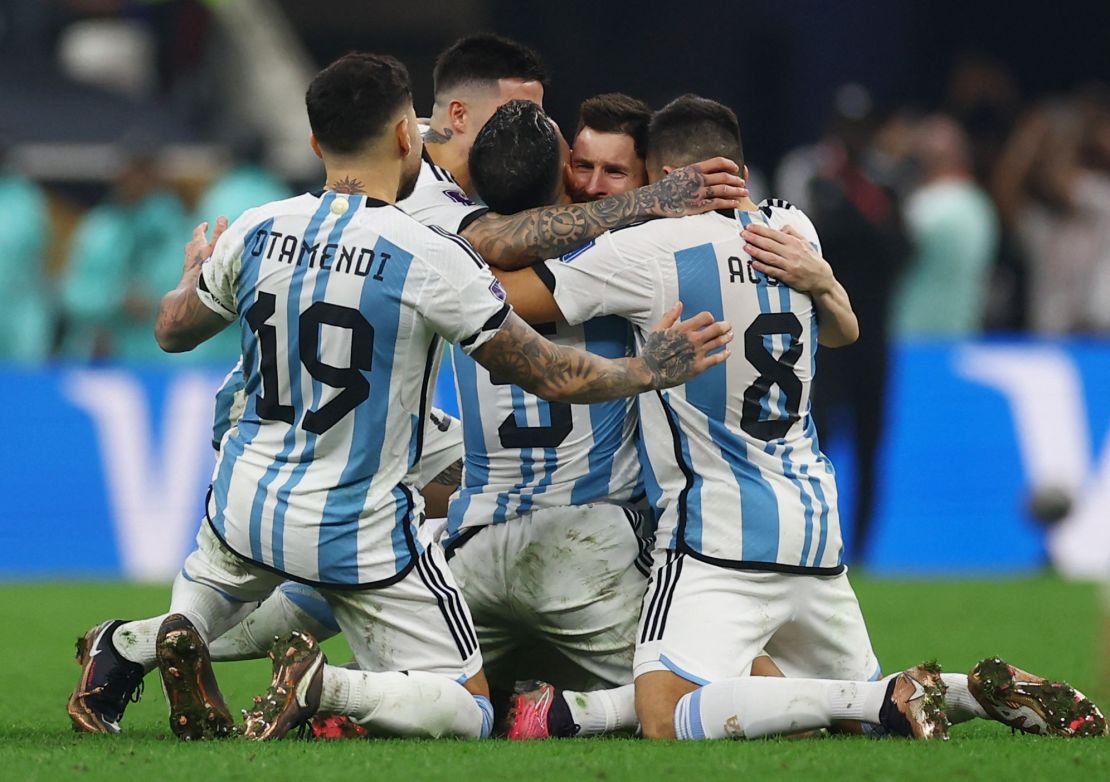
Messi vs. Mbappe
Messi sprang to life inside three minutes at the Lusail Stadium, picking the ball up in a pocket of space between France’s midfield and defense and instantly pinged a ball wide left into the path of Angel Di Maria.
It led to the game’s first chance – with Messi also involved again in the build-up, exchanging quickfire passes on the edge of the box – but last-ditch defending and the linesman’s flag prevented Julian Alvarez getting a clean look.
It’s no secret that winning the World Cup with Argentina has been Messi’s lifelong dream, bordering on an obsession.
Though there is no doubt that, at 35 years of age, Messi is slowing down his near-superhuman powers beginning to diminish, there have still been several moments at this World Cup of the absurd, magical brilliance that fans have been accustomed to seeing over the years.
His goal against México and the assists against the Netherlands and Croatia are undoubtedly among his most memorable in an Argentina shirt and helped drag this team to the final, giving the little magician one last chance to win the trophy he craves the most.
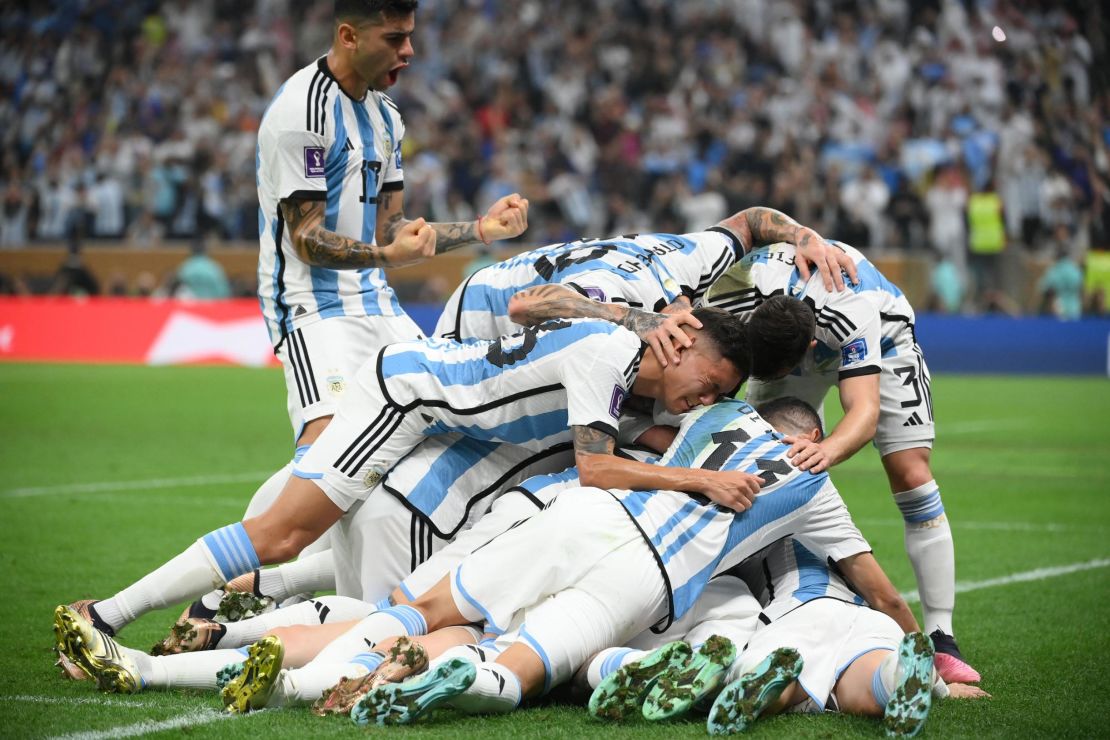
In the 23rd minute, Messi got the opportunity to further cement his name in history with another career-defining moment, after Ousmane Dembélé’s clumsy foul had brought Di María down inside the penalty area.
Messi then stepped up to take the spot kick, becoming the only man to score in the group stage, round of 16, quarterfinals, semifinals and final of a single World Cup, according to Opta. Just when you think there can be no more records for him to break, Messi finds another.
He is also the second-oldest player to score in a final and with this, his 26th World Cup appearance, no male player has played in as many World Cup games. His performances earned him the Golden Ball, too, the prize for the tournament’s best player.
For all his remarkable, ludicrous abilities, penalties are perhaps the one major part of the game that Messi has struggled with over the years, missing several on huge occasions.
That had no impact on his confidence, however, as he stepped up and nonchalantly rolled the ball into the corner, sending Hugo Lloris the wrong way.
He played a part in Argentina’s exquisite second, too, sparking the counterattack that led to Di María’s goal with a delightful little flick around the corner to Julián álvarez.
Messi was even joining in with Argentina’s defensive duties, tracking back and picking the pocket of Randal Kolo Muani, who had been brought on by Dider Deschamps in a shock early double substitution before halftime.
Even the most ardent, optimistic Argentina fan couldn’t possibly have dreamt of a first half as good – and straightforward – as that from Messi and his teammates.
It seemed impossible that this was the same team that was stunned by Saudi Arabia in the opening group game – a performance so devoid of character and heart that it left many wondering whether Argentina would even make it out of the group.
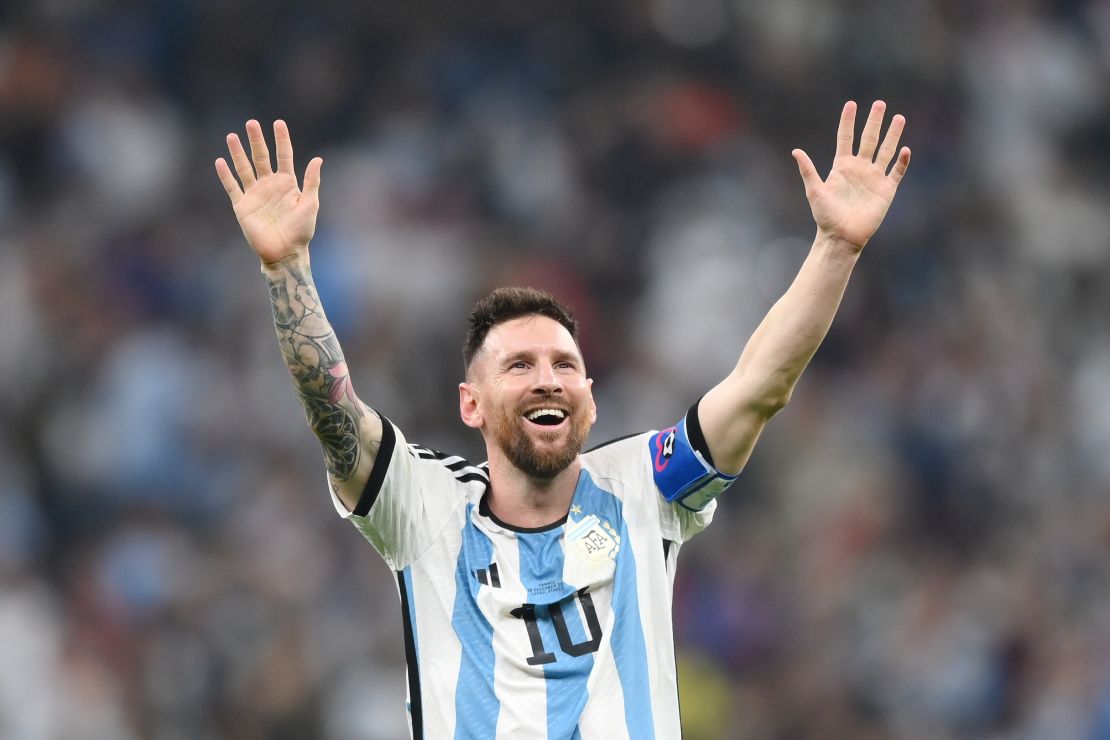
On the brink
But as the tournament has progressed, Argentina and Messi improved.
With each passing performance, each moment of Messi magic, fans had started to believe that the script had already been written, that the boy from Rosario would end his World Cup career – he said that this would be his last – in the greatest way imaginable. Few, however, could have predicted such a thrilling finale.
As the second half went on, Argentina fans inside the stadium, and the tens of millions more watching around the world, would have grown ever more confident that this was indeed going to be a routine victory, the culmination of a lifelong dream.
As brilliant as Argentina had been, however, France had been equally as disappointing. Per Opta, it was the first time since 1966, when stats started to be collated, that a team had failed to register a shot at goal in the first half of a final.
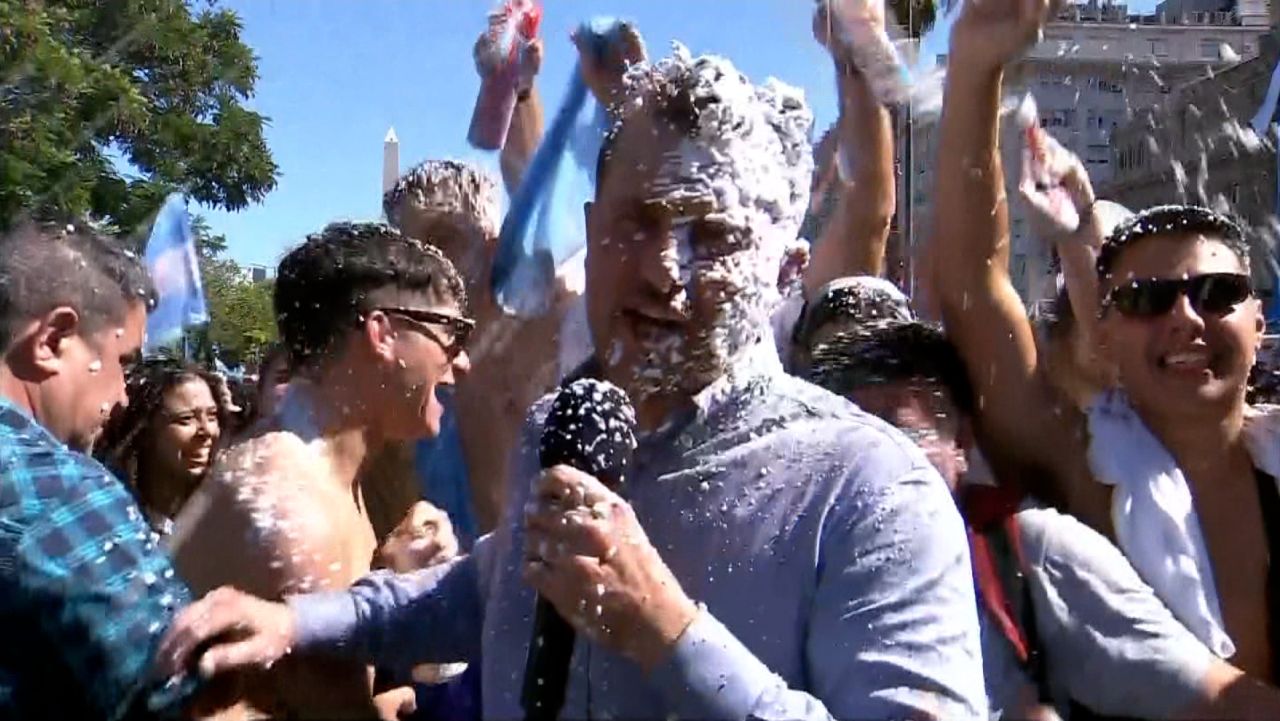
It was a historically bad performance from France and Mbappé. Until it wasn’t, that is.
In the space of 90 improbable seconds, France came from 2-0 down to tie the game and, in perhaps the most predictable twist ever, it was Mbappé who struck twice.
The first was a low penalty, drilled with just enough power to nestle into the bottom corner, despite a hand from Emi Martinez, and the second a stunning volleyed finish after receiving a return pass from Marcus Thuram.
It was a cruel twist of fate for Messi, as he was responsible for giving the ball away that led to France’s equalizer. After dragging his team to the brink of immortality, Messi’s mistake proved that he was indeed mortal.
Yet, there was more to come.
Messi got his moment, his second goal, tapping in after Lloris had saved from Lautaro Martínez’s strike – it was Messi’s 98th goal in an Argentina shirt, and it was without question his biggest yet.
But still France, and more specifically Mbappé, were not done.
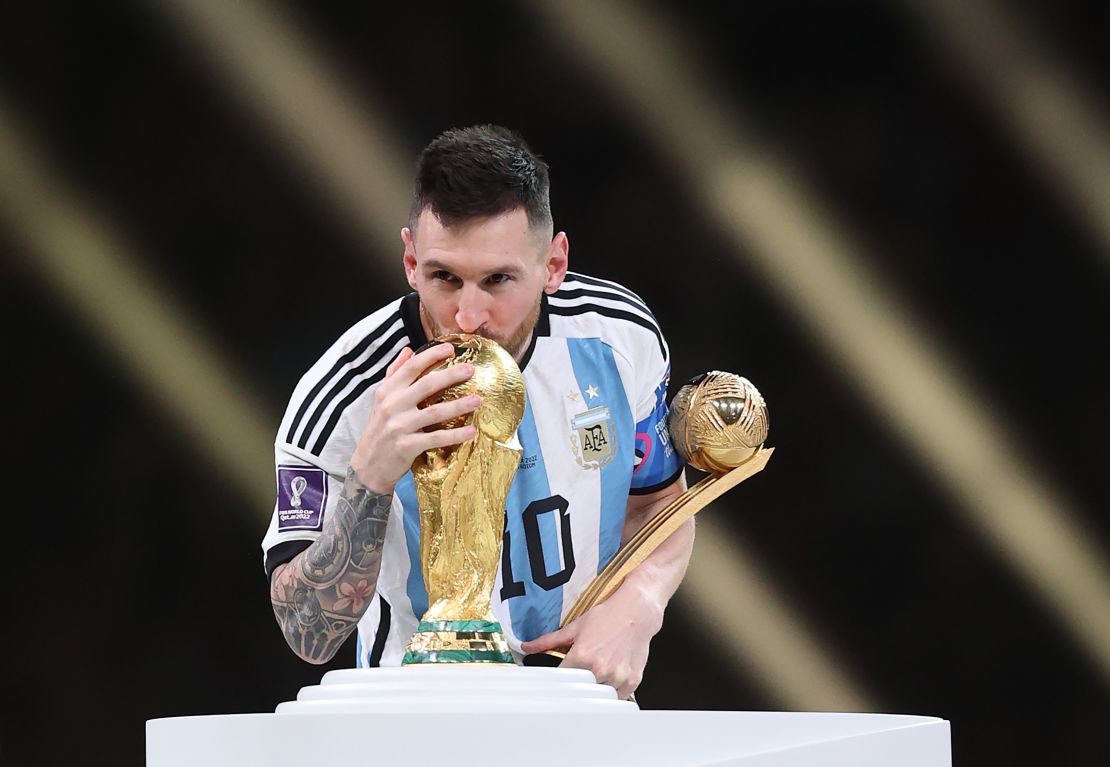
The Paris Saint-Germain forward stepped up after Montiel had blocked his with his arm and buried his second spot kick to take this quite remarkable final to penalties.
It was fitting that both Messi and Mbappé scored their penalties after producing one of the best duels this sport has seen, but more heroics from Martinez in the Argentina goal ensured it was Messi who lifted the trophy.
From the moment he was old enough to kick a ball, Messi’s greatest desire has been to win the World Cup with Argentina. It was never going to be straightforward, but through sheer force of will he has finally realized his lifelong dream.
